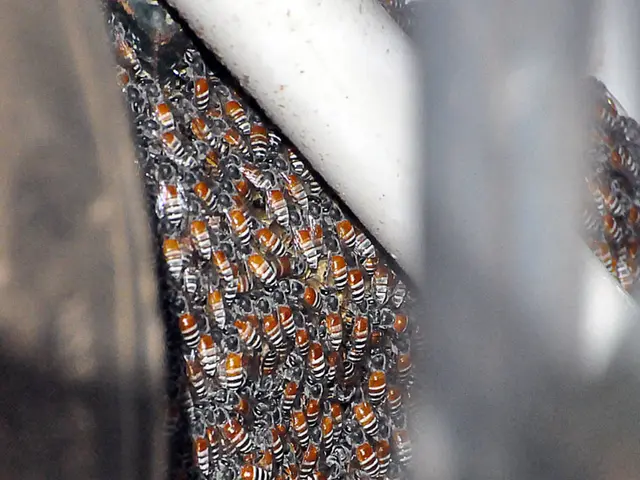EU Parliament's Decision on Wolf Protection Sparks Controversy
EU Parliament Authorizes Increased Wolf Culling
In a move that has sparked heated debate, the European Parliament has voted to lower the protection status of wolves from "strictly protected" to "protected". This change may make it simpler for farmers to eliminate wolves posing a threat to their livestock, a decision that's facing widespread criticism.
Here's a rundown of what this decision entails and why it's provoking controversy:
Implications for Wildlife and Conservation
- Potential Decrease in Wolf Population: By easing hunting restrictions, there's a risk of reduced wolf populations, which may affect the species' ability to thrive and sustain genetic diversity.
- Disruption of Ecosystem Balance: Wolves play a significant role in maintaining ecological balance. The decline in their numbers might lead to cascading effects on the environment, potentially affecting the natural trophic structure and promoting overgrazing.
- Conflict with Conservation Goals: This decision contradicts recommendations from some scientists and conservation groups who advocated for maintaining wolf protections due to their ecological importance and vulnerable status in certain regions.
Implications for Farming and Communities
- less Livestock Attacks: Stepping down the wolf protection threshold could reduce livestock assaults, benefiting farmers financially and potentially minimizing economic burdens associated with wolf predation.
- Farmer Support: The decision has been seen as a positive step by farmers who have long argued for stronger safeguards for their livestock from wolf attacks, potentially improving relations with EU policymakers.
- Political Implications: This move aligns with the European People’s Party's campaign promises and the interests of conservative lawmakers, potentially impacting the political landscape within the EU.
Societal and Economic Implications
- Public Divide: This decision may fuel a divide within EU public opinion, with those prioritizing conservation aspects voicing concerns, while others supporting rural livelihoods may view this as a necessary measure.
- Economic Impact: While reducing wolf attacks could benefit farmers financially, it could also affect ecotourism and biodiversity-related economic activities that depend on the presence of wolves.
All in all, this decision presents a delicate balance between livestock interests and wolf populations, though conservationists view it as a drawback. The debate surrounding wolves is intensely emotional, reflecting the rise in incidents of livestock attacks which pose a significant challenge to pastoral farming. With the EU member states set to adopt this change, the future of wolf conservation within the EU remains uncertain.
Sources: ntv.de, lar/dpa
- Wolves
- EU Parliament
- Strasbourg
- EU
- Animals
- Animal Welfare
- This decision by the EU Parliament to protect wolves less stringently, made in Strasbourg, has spurred controversy within the realm of animal welfare, as it may lead to the potential decline of wolf populations.
- The European Parliament's decision to lower the protection status of wolves could protect farmers from livestock attacks, a move that aligns with the interests of conservative lawmakers, as seen in this general news article.
- In the face of criticism from conservationists, the European Parliament's decision to protect wolves less stringently contradicts recommendations from some scientists and organizations in the field of environmental science.
- The EU Parliament's vote to protect wolves less stringently has implications for communities, as it may further strain relations between environmental groups and policymakers who support the decision.
- The debate over wolf conservation in the EU following the Parliament's decision is a reflection of the societal and economic divide between those prioritizing rural livelihoods and conservation aspects, with economic impact on both farmers and ecotourism industries at stake.








